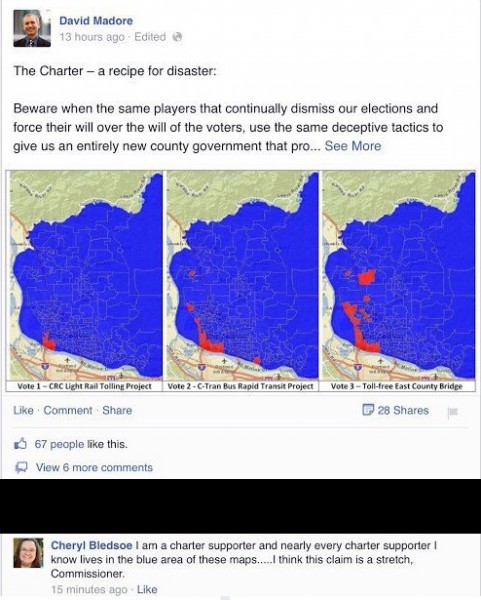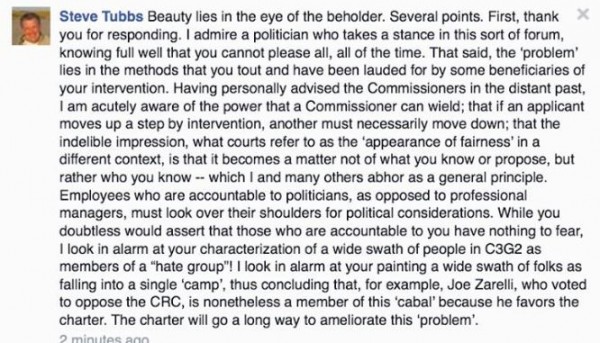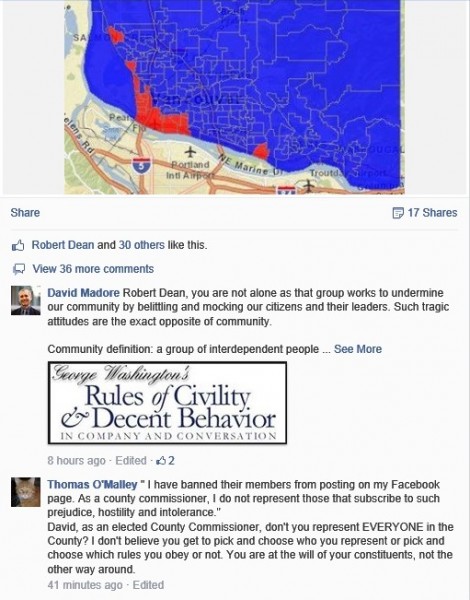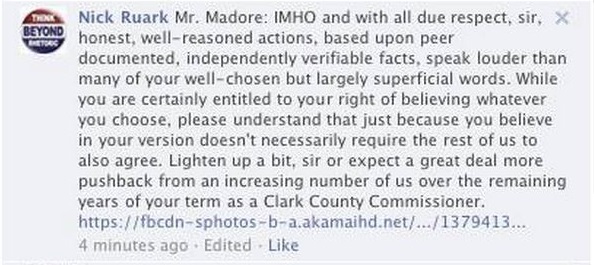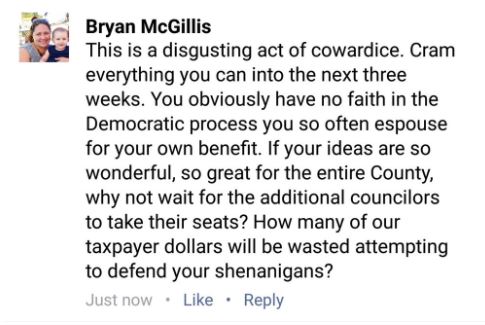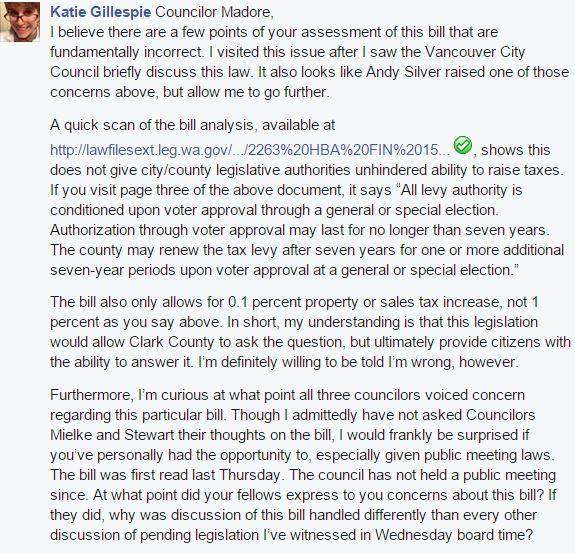Prolific Facebook banning in question

I put out a crowd sourcing call on Twitter over the weekend asking readers to share what they believed was the post that got them banned from posting on Councilor David Madore’s Facebook page.
This has been an ongoing issue for years, but it suddenly becomes even more relevant as the council considers archiving its Facebook posts. While your average private citizen or business has every right to delete comments and ban people from posting, a public official may not be entitled to that same right. After all, if a councilor were to delete emails or voice mails regarding county business from their private cell phone or email account, that would be destruction of a public record.
Destruction of a public record is a class C felony punishable in a state prison for up to five years, or a fine of $1,000, or both.
The Washington State Supreme Court hasn’t weighed in on social media yet, but the Public Records Act defines a public record as “any writing containing information relating to the conduct of government,” and later defines writing as “any form of communication.”
The Facebook comments
Many people messaged me, emailed me or tweeted at me sharing their deleted posts. For sake of documentation, I only included those that provided screenshots (my own experience included). I also removed or blacked out comments from people who did not contact me for this story, so as not to be confusing.
Keep in mind these are self-reported records from individual readers and, because Madore’s Facebook is not a public record, I’m unable to verify that these people are, in fact, banned. I know this because I’ve asked for that information, and was told the county had no responsive records to my request.
Without further ado, here’s a sampling of what I received.

